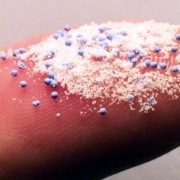What’s the deal with the Plastic Soup again?
March 15 2024 That’s what readers of news site nu.nl on their comment platform Nujij were wondering. In a recent […]
On January 1st, 2016, the Netherlands banned the distribution of free plastic bags. The European Union forces the Member States to take measures against the unbridled use of the plastic bag. From all the distributed bags, a significant part of them end up in the environment, and contribute to the plastic soup. It is the first legal action against the plastic soup taken by the Dutch government.
However, is it really an effective ban? For hygienic reasons and to reduce food waste, the ultra thin plastic bags will continue to be provided to markets and vegetable sections in supermarkets. The measure also states that shop owners may choose for themselves the amount of money that should be paid for each bag. They do not have to follow the target price of 25 cents per bag but can sell them for any price.
These ´loopholes´ are the result of a very strong lobby by the packaging industry conducted last year. They even mislead the people by saying that “from all the tested bags, plastic bag is the best choice in terms of environmental impact.” In the report they referred to, however, harmful effects of plastic in the environment (plastic soup), were completely ignored.
March 15 2024 That’s what readers of news site nu.nl on their comment platform Nujij were wondering. In a recent […]
The first Impact Fair is Europe’s largest Impact Experience. An interactive ‘immersive’ experience of impactful examples.
The waste-export to countries outside of the EU has been restricted The Netherlands is against a carpet ban on shipping of plastic waste.
The waste-export to countries outside of the EU has been restricted The Netherlands is against a carpet ban on shipping of plastic waste.

 “Clearing up microplastics near the coasts is much more effective”
“Clearing up microplastics near the coasts is much more effective”